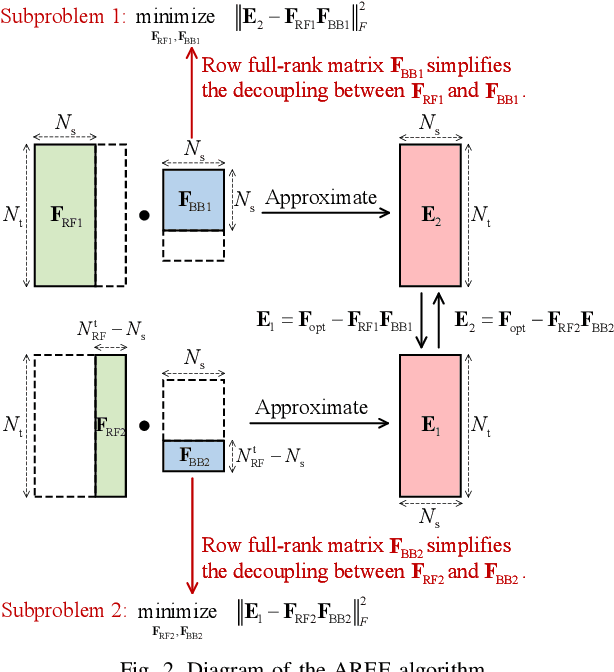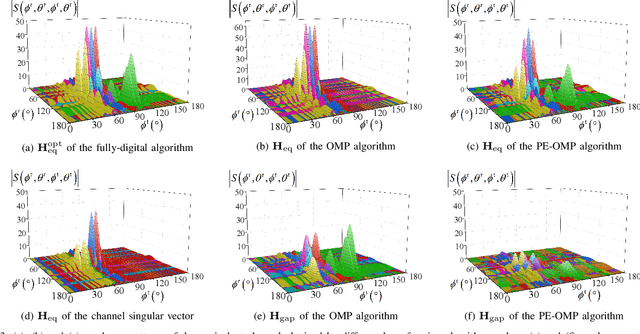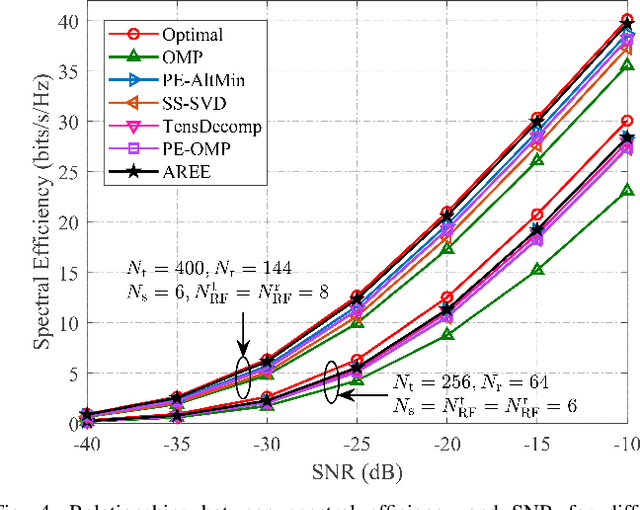Jiazhe Li
Dual Orthogonal Projections-Based Multiuser Interference Cancellation for mmWave Beamforming in XL-MIMO Systems
Aug 23, 2025Abstract:This paper investigates multiuser interference (MUI) cancellation for millimeter-wave (mmWave) beamforming in extremely large-scale multiple-input multiple-output (XL-MIMO) communication systems. We propose a linear algorithm, termed iterative dual orthogonal projections (DOP), which alternates between two orthogonal projections: one to eliminate MUI and the other to refine combiners, ensuring a monotonic increase in spectral efficiency. Theoretical analysis and simulation results show that, with each iteration, the signal power for each user increases monotonically, the equivalent noise power after receive combining decreases monotonically, and the spectral efficiency improves accordingly and converges rapidly, closely approaching the theoretical optimum determined by dirty paper coding (DPC), outperforming existing linear algorithms in spectral efficiency.
AREE-Based Decoupled Design of Hybrid Beamformers in mmWave XL-MIMO Systems
Jul 03, 2025



Abstract:Hybrid beamforming has been widely employed in mmWave communications such as vehicular-to-everything (V2X) scenarios, as a compromise between hardware complexity and spectral efficiency. However, the inherent coupling between analog and digital precoders in hybrid array architecture significantly limits the computational and spectral efficiency of existing algorithms. To address this issue, we propose an alternating residual error elimination (AREE) algorithm, which decomposes the hybrid beamforming problem into two low-dimensional subproblems, each exhibiting a favorable matrix structure that enables effective decoupling of analog and digital precoders from the matrix product formulation. These subproblems iteratively eliminate each other's residual errors, driving the original problem toward the optimal hybrid beamforming performance. The proposed initialization ensures rapid convergence, while a low-complexity geometric channel SVD algorithm is developed by transforming the high-dimensional sparse channel into a low-dimensional equivalent, thereby simplifying the derivation of subproblems. Simulation results demonstrate that the AREE algorithm effectively decouples analog and digital precoders with low complexity, achieves fast convergence, and offers higher spectral efficiency than existing beamforming methods.
 Add to Chrome
Add to Chrome Add to Firefox
Add to Firefox Add to Edge
Add to Edge